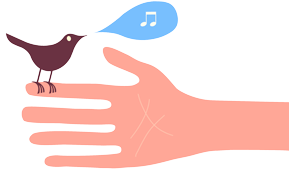 [Note from Cindy: when I saw this information about Fat Liberation, I was so appreciative of how thoughtful it was and how it was framed that I asked Lex for permission to make it into a series of blog posts on my website. They generously agreed. So please enjoy this series. I hope you find it inspiring and helpful, as I did.]
[Note from Cindy: when I saw this information about Fat Liberation, I was so appreciative of how thoughtful it was and how it was framed that I asked Lex for permission to make it into a series of blog posts on my website. They generously agreed. So please enjoy this series. I hope you find it inspiring and helpful, as I did.]
The purpose of this blog post series is to envision the contexts under which fat people who practice fat liberation might cultivate emotionally safe, identity-affirming, mutually enriching relationships with thin people. It assumes that one common, even predictable, outcome of being a member of an oppressed social group is the disruption of psychological and relational development of marginalized individuals due to the relationship between marginalization and complex trauma. Given this disruption, marginalized individuals often have identity-specific relational conditions which must be met before psychological and relational healing can commence and a sense of liberation can be experienced by the individual.
This blog series explores a pattern of reasoning which includes three steps:
- I discuss some facets of the system of anti-fatness (experiences that fat individuals are likely to have in a fatphobic world).
- I explore some of the common potential psychological and relational impacts those systemic dynamics may have on individual fat people’s development.
- I posit potential strategies for redressing the harm those individuals navigate in relationships by contextualizing their emotional and relational needs within a liberationist framework which offers those needs deference and epistemic authority.
This three-step pattern follows the sequence: “Because many fat people have experienced X, we are likely to feel Y in relational contexts, and to mitigate that relational dynamic, we need Z.”
The purpose of articulating these needs is twofold:
- First, the very act of envisioning a world in which the interpersonal liberation needs of fat people are taken seriously is a way of feeling our way into the true worthiness and inherent dignity of fat people, which helps expose and deconstruct the extent of internalized oppression and shame most fat people carry with them. In a world where most of us fatties have come to believe we cannot and should not expect to be treated better than we are, the act of envisioning insists otherwise.
- Second, I believe that articulating these needs is the first step to empowering communities to deconstruct anti-fatness and embody the vision of a world which is no longer dependent on fatphobia to function.
Before we begin, a caveat: these posts are intended for readers who have already recognized the harmful ways that fat people are pathologized and who have arrived at a degree of acceptance and/or identity development around fat identity.
It is obvious to anyone who has participated in other liberationist movements that no marginalized social group is a monolith. The liberation needs of each individual marginalized person is always unique and deeply contextualized. Fat needs change based on each fat person’s developmental journey.
Fat identity, itself, varies widely. Beyond mere differences in the sizes and shapes of individual bodies, we must also consider how each person’s history with weight impacts their understanding of how it relates with their sense of identity. The experience of the fat person who was fat as a child but slimmed down as an adult may be entirely different from the experiences and needs of a fat person who gained weight later in life. Perspectives may shift wildly based on where a person was in their emotional development or their chronological age when it happened. To this, we might add the experience of someone who has been fat their entire life, or of those individuals whose weights have fluctuated rhythmically or gone through dramatic cycles of loss and gain across various seasons of life.
Each individual fat person’s relationship with attempts to lose weight and what those experiences have been like will impact their experience. The cultures and relationships around each individual fat person — and therefore the specific messages they receive — will be at least slightly different for everyone. There may be significant qualitative differences in how fatphobic messages are internalized based on how covert or overt the messages are, and in which contexts they are inculcated.
Racial and ethnic differences, psychological temperament/neurotype, gender differences, sexuality, (dis)ability, religion, country of origin, language of origin, health status, age, relationship status, and so many other intersections will impact the way in which anti-fat oppression will be experienced and internalized by each individual. The list of variations is endless.
With that being said, the hope is that this series of posts can be one potential vision for liberation among many.
Lex Vriend (he/they) is a lover of trees, social justice, deep questions, fossil hunting, dance rituals, mushrooms, poetry, emotional intimacy, epistemic humility, and humans who revel in their weirdness. Lex is a Licensed Professional Counselor in private practice in Fort Worth, TX. He is passionate about integrating psychological models with frameworks of intersectional social justice, cultural difference, and ecological wholeness.
